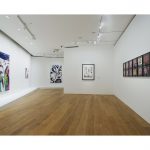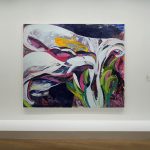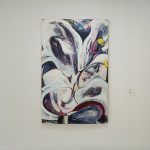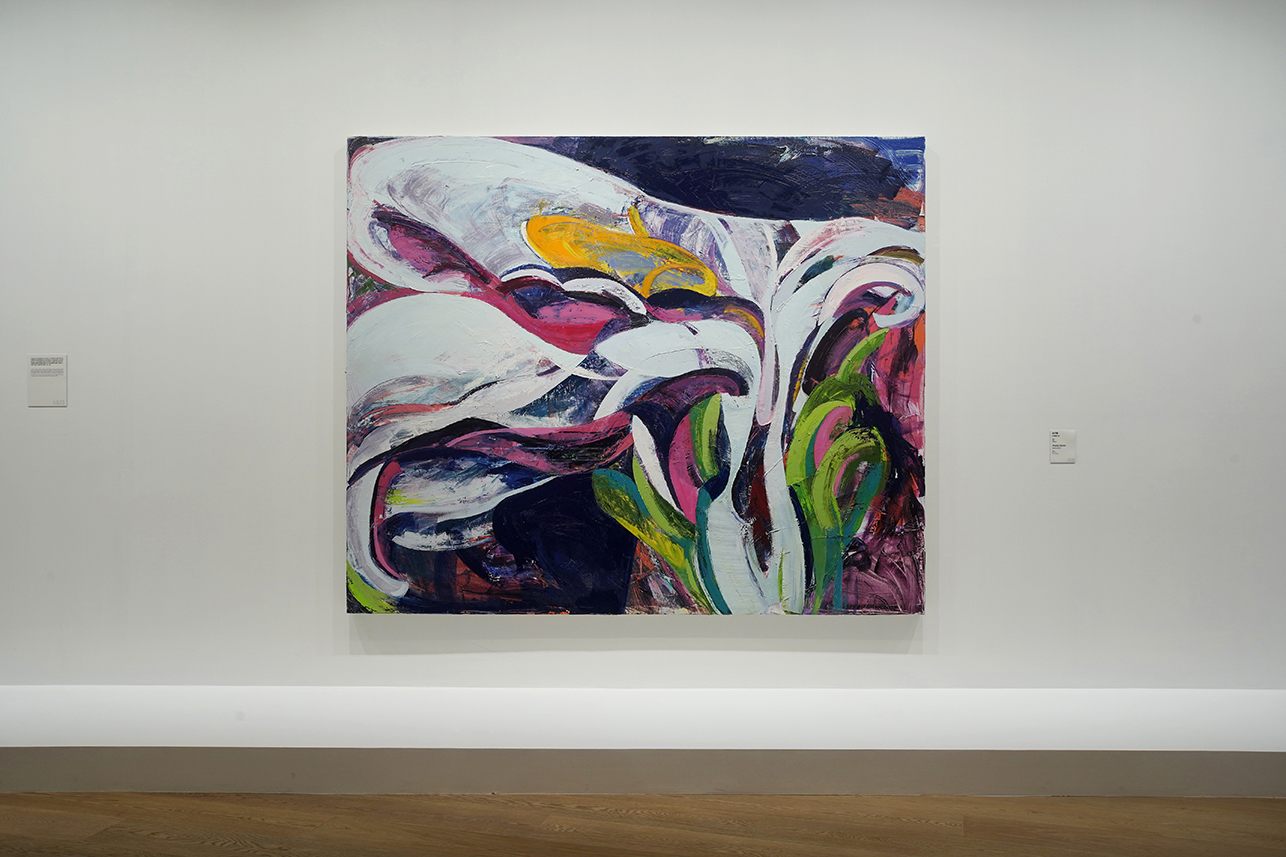


It’s hard to describe Zhang Zipiao’s art as beautiful, at least in the conventional sense. There’s an anatomical precision to the way her subjects are often sliced and examined against backdrops of unexpected colors. With close scrutiny, her purple bananas begin to resemble ngers, and pumpkin seeds seem to turn into blood vessels oating in a pool of crimson. The paintings mesmerize and challenge the viewer: “What is beauty?” the artist asks. “Does it always have to be so clean and perfect?”
Zhang is among four Chinese artists recognized by 2019’s Forbes 30 Under 30 Asia. Like many of her millennial peers, she expresses an individualism born out of a booming economy at home and a global perspective gained from studying abroad. Artists of her generation are at the forefront of China’s ourishing art scene, and a newfound freedom has enabled them to pursue topics of personal fascination. For Zhang, these have been beauty in the social media age and, more recently, power dynamics in relationships.
A natural instinct for colors and composition led Zhang to challenge notions of conventional beauty at a young age. Her classmates and teachers used to mock her paintings because students were expected to conform to a realistic style in order to be accepted into Chinese art colleges. Though Zhang’s free-spiritedness played a role in pushing against these standards, she also credits her father, who taught animation at Tsinghua University, as a key gure in her artistic growth. “He told me to ignore them and paint whatever I wanted, and this encouraged me a lot to paint freely and not be framed by the rigid system,” she recalls. Zhang eventually left the system altogether to study at the School of the Art Institute of Chicago.
In Chicago, social media was becoming a ubiquitous part of everyday life. Zhang was intrigued by the way people and objects were presented on these platforms, in a manner that she believed was too simple. “The beauty most people think about can be too one-sided,” she says. “The fruits I paint are often cut; this conveys a sense of revealing the truth underneath whatever the skin is—whether it be of a human or something else.” Her painting process is one of discovery; she continuously shapes her pieces in search of a form that surprises or satises her.
Zhang’s fascination with objects can be traced back to her upbringing. “Your childhood can have a lifetime of an impact,” she says. She explains that her xation on material objects is rooted in a “lack of belonging” she experienced as a child, when she lived apart from her father and moved from rental to rental with her mother. Throughout this instability, she found solace in familiar objects. “I liked anything that had my mom’s smell rst, like her clothes or her side of the bed,” she says. “I liked to linger in the smell and chew on it, sleep with it, or hold it—every method you could imagine.”
Zhang’s recent work on relationships builds o of her previous exploration of beauty and the connections we can have with objects. Just as she sees beauty as encompassing more than our conventional ideas, she hopes to challenge our understanding of relationships. “There is no absolute equality in any relationship,” she says. She sees relationships as constantly evolving balances of power, and sex as one form of expressing this dynamic. “Sex is never just about sex itself,” she says. Just as beauty can be found in imperfections and underlying meanings, the subtle expressions of power and vulnerability in sex are rife for examining what a harmonious relationship can or should look like.


